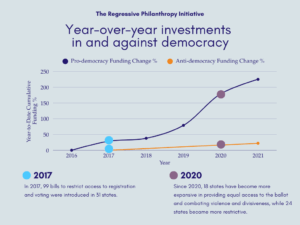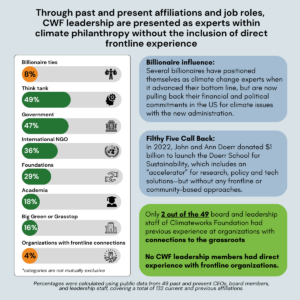Changes in leadership can be difficult for organizations to weather, especially social change organizations where vision and passion are so critical to success. Our relationships to social change nonprofits – be they as constituents, supporters or funders – are often rooted in comfort with and trust in their leaders. When these leaders change, our confidence in the organization can be tested.
No doubt many funders have a story about a grantee whose leadership turned over, suddenly or not, causing strain on the grantor-grantee relationship and perhaps even a break in funding.
Today the leader of the world’s largest social change organization is here in Washington, D.C., and he brings with him the sky-high expectations, and for some, scathing skepticism of millions of his American constituents and supporters – not to mention nearly a billion more around the world. Pope Francis’s visit to the United States presents a good opportunity for the social sector, and funders especially, to reflect on their relationships with nonprofit leaders. How can we encourage the kind of sweeping vision Francis has promoted since his election in 2013? How can we trust new leaders when they make clear, as Francis has, that they intend to radically change the image, and even some contentious policies and practices, of trusted institutions?
Pope Francis’s time on Peter’s throne has been marked by a refreshing refocusing of, at the very least, the image of the papacy back onto the poor, the powerless and the oppressed. His choice of namesake, honoring a saint famous for venerating the poor, was a signal, reinforced by his public actions. It’s clear that, whenever possible, Pope Francis is focused on making those at the margins of society the center of an evangelical, global Church. Last Easter found him washing the feet of homeless women and children and people living with AIDS (and not priests, as is customary). He has warned the world not to sacrifice the poor at the “altar of money” and has begged forgiveness on behalf of the Church from America’s native peoples for what he called the “abundant amount of [sin]” that attended the European conquest of the Western Hemisphere.
Furthermore, he has made clear his tone, if not Church dogma, will be reconciliatory and compassionate more than judgmental and exclusionary. He has pursued a new pastoral approach to divorced and gay Catholics, and he has increased dialogue with Orthodox Christians, Jews and Muslims to find common ground.
For all of this and more, the Pope has come under intense criticism from traditionalist Catholics, conservative politicians and others worldwide. He has riled factions within the Church whose commitment to dogma goes back centuries, and he’s asserted himself on the global political stage more than any Pope in centuries, perhaps with the exception of John Paul II, whose inclination was often more to consensus-building than iconoclasm. He has opened himself and the Papacy to attacks from all sides, and through it all he has maintained his convictions.
Pope Francis’s strident, confident questioning of the status quo and his humility are what many social change organizations hope for in a leader. They are qualities funders ought to seek in grantee leaders. And, granted that most nonprofit leaders don’t have divine infallibility to back them up, they are characteristics that ought to engender trust above all else, especially for foundation staff. Leadership that is inclusive, compassionate and courageous is crucial for a nonprofit to be successful. When funders see it, they need to trust it, whatever tribulations and controversy might come with it.
Further, we in the social sector need to recognize that this kind of leadership needs to be nurtured and taught, not just expected as manna from heaven. As explored by NCRP’s recent report, Cultivating Nonprofit Leadership, less than one percent of grant dollars in the United States between 2003 and 2012 was dedicated to nonprofit leadership development. Without the financial support of funders and the tools to grow into greater leadership, many nonprofit executives strain to accomplish their goals, fail to build the coalitions needed to win and burn out. Funders who yearn for visionary, radical leadership like Pope Francis’ ought to invest more in their grantee leaders’ personal and professional development.
We should hope for – and welcome – more risk-taking servant leaders like Pope Francis in the nonprofit sector. And just as importantly, we should focus our efforts on teaching, trusting and funding the leaders we have now.
Ryan Schlegel is a research associate at the National Committee for Responsive Philanthropy (NCRP). Follow @NCRP on Twitter.





































































































































































































































































































































































































































